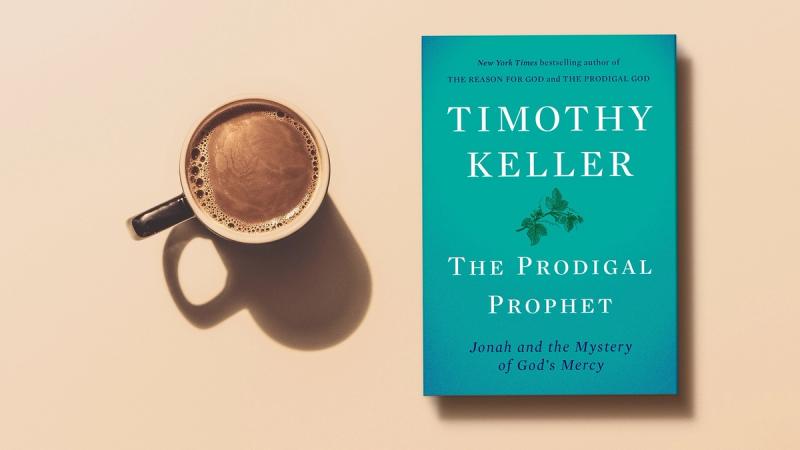While Tim Keller continues to write new things, it is hard to write new things about Tim Keller’s books. Virtually all of Keller’s books can be placed into one of two categories—those primarily meant to educate and those primarily meant to edify. In the first category, where pen and highlighter must be kept at the ready, you’ll find more systematic books like The Reason for God, Walking with God through Pain and Suffering, and Counterfeit Gods. In the latter category, you’ll find more expositional books like The Prodigal God and Encounters with Jesus.
Keller’s newest book, The Prodigal Prophet: Jonah and the Mystery of God’s Mercy, fits in this latter category. As a result—with highlighter put away—this review won’t provide a collection of pithy thoughts and quotes, but more general impressions of an incredibly edifying work.
It is important to remember that everything Keller writes is shaped by his years of ministry in and to his former congregation in New York City. I note this because his context is so very different from so many of his readers. Evangelicals who are more accustomed to culture wars than competing worldviews will bristle at some of Keller’s broad guidance concerning politics, culture, race, and justice. One fellow believer told me that she believed Keller was imposing his discussion of race upon the text of Jonah.
Why do I mention this second-hand critique at the outset? We must be quick to acknowledge diverging cultural contexts between writer and reader or we will be unable to read and appreciate a book on its own terms. Rather than trying to place Keller on our self-imposed scale of “wokeness,” we should understand that race is not only a prominent issue in the book of Jonah, but an issue that most young readers—both believers and skeptics—will want to see thoroughly addressed.
As for tone, the winsomeness that stretches through his writings comes through in this work as well. He doesn’t lecture us on Jonah, nor does he try to pander in order to be relevant. He is conversational, as if he’s the friend on the other side of table at the craft brew pub. Even the cadence of his writing allows the reader to feel engaged rather than overwhelmed. Words aren’t crammed onto pages and chapters can be read and digested in 10-15 minutes.
Keller is also charitable. We are so inundated by public figures who resort to hyperbole, ad hominem attacks, shaming, and browbeating to make their points. In turn, we become cynical toward even salient points because we don’t trust the tactics of those who make them. Keller quotes thinkers from all walks of life with grace and gratitude, treating them as favored participants in the discussion. This sets the reader at ease as well. Few things disarm a reader as much as charity toward opponents.
Returning now to the content of The Prodigal Prophet, Keller works through the text with a deft hand, pulling out illuminating insights and making careful (but not tedious) arguments for preferred interpretations of the text. As usual, Keller is particularly helpful in connecting the text to the cross, showing how the story of Jonah casts new light on Jesus and how Jesus casts new light on the story of Jonah. Also in good Keller fashion—the reader will find a unique twist or two toward the close of the book.
While the racial motif might seem peripheral and overly controversial to some readers, it seems to this reader to be both immensely biblical and helpful. Keller makes a convincing case that racial and national superiority is at the heart of Jonah’s flight and rebellion from God, offering convincing proofs from the text throughout the book of Jonah. Readers will be reminded of Counterfeit Gods as Keller shows how Jonah perverts a healthy love of country into a false identity.
He is also helpfully nuanced in his treatment of our relationship to the world. He speaks of ways in which Christians can work for common good of their society but doesn’t enumerate exactly how to do so (162). In fact, he expressly speaks against the binding of the conscience in matters of wisdom and prudence (164-165). It is rare to see a public theologian both encourage political participation and avoid prescribing how exactly to how go about it. Such restraint allows the reader’s conscience to get to work.
One little quibble I have with the book: The structure is a bit convoluted. Keller walks the reader through the story one passage at a time—and then walks the reader through most of the same passages again in the final three chapters while making some practical applications. This blunts some of the force of both Keller’s storytelling and the prescient points he is trying to make at the end.
This does not diminish the joy of reading Keller’s work. He is a gentleman in an age of demagoguery. He avoids becoming just another Christian partisan, though people are often willing to label him as such. And if we are willing to listen, he teaches as much about discourse as about doctrine. As he engages a myriad of dialogue partners, he does so to first capitalize on truth before working to tear down falsehood.The Prodigal Prophet is best suited for mature believers, adult education, and white-collar skeptics. He has the deft touch of one who has operated in these circles for years. His work doesn’t translate as well for those who are new to the faith or are more experiential in their thinking. In my context, Keller translates better to officers than enlisted soldiers. If you are trying to relate to our more experiential types, I would encourage you to read this book and simply let it permeate your conversations.
Stephen Roberts is a US Army chaplain and has written for The Washington Times and The Federalist.



